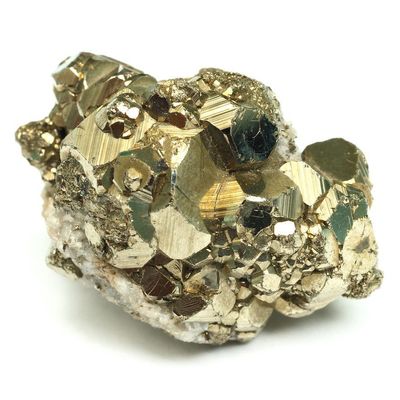Bitcoin: Virtual Fool's Gold


The sales pitch for Bitcoin could be; "money without banks". Not only can you conduct financial transactions without some regulating authority (and by implication do so anonymously), but you can also mint your own money from nothing. It's an economic utopia which liberates us from both corporate and government control, whilst eliminating poverty.
The reality is very different, both in principle and in practice.
Money for Nothing
Money is simply an abstract representation of indebtedness. It's an "IOU" for goods and labour. Those goods and labour are the only things that give money any genuine "value". Money itself is worth nothing, and quite rightly so.
Unlike real money, which must be earned by the production of goods and labour, Bitcoins are simply conjured out of the ether from nothing. The only actual "work" that goes into the "value" of Bitcoins, is the computational work necessary to "mint" those Bitcoins in the first place (a circular justification). They are in no sense representative of any sort of useful productivity, but have "value" purely by virtue of the fact that, those who use Bitcoins, arbitrarily choose to believe they have value, much as theists choose to believe in angels.

In that sense, Bitcoins share much in common with diamonds. Nicky Oppenheimer, former chairman of the De Beers diamond mining company, is famously quoted as saying that "Diamonds are intrinsically worthless". This is because the supply of diamonds is artificially limited by De Beers, which has a global monopoly on production, but in fact they are plentiful, and thus their high value is really a scam, but one which persists because there are those foolish enough to continue supporting it, those unscrupulous enough to continue perpetrating it, and neoliberal governments which refuse to adequately regulate it.
Now certainly, once a Bitcoin has been "minted" and actually starts to circulate, it may indeed eventually be used as a justifiable abstract representation of real property and productive labour, but that belies the fact that the provenance of that "value" is a work of pure fiction, it has no intrinsic value, and it was originally "created" by someone who profited literally from nothing.
If all this sounds hauntingly familiar then it should, because that is also a textbook description of the existing banking system ("a license to print money").
Similarly the supply of Bitcoins is artificially limited, in this case by a computer algorithm, but the outcome is the same. Moreover, the production of Bitcoins is monopolised by those rich enough to afford the expensive equipment and running costs necessary to "mine" them. If you are unfortunate enough to be one of the 80% of the world's population who currently lives on less than $10 a day, or frankly even one of most of the remaining 20% forced to live a subsistence lifestyle, the prospect of Bitcoin liberating you from the oppressive inequality of capitalism is, really, less than zero.
The Dark Underworld of Bitcoin Mining

The world of Bitcoin mining is strangely secretive. Getting a straight answer about profitability is difficult, to say the least. Nobody seems to want to talk about it, and those who do usually give cryptic answers. The reasons for this are twofold.
First, the truth is that most Bitcoin miners make no profit at all, and indeed operate at a loss. This is because the computational power necessary to "mint" a Bitcoin is vast, and constantly rising (by design), so unless you are extremely wealthy then you have no hope of competing with other miners.
Even if you can somehow afford the hardware and huge electricity bills, your profits will be so tiny that it will take years to recover your initial investment costs, and meanwhile the computational difficult of mining continues to rise exponentially, as other miners compete with each other in a sort of ASIC arms race, which you must keep up with or be rendered impotent. This means that you will in fact never recover your hardware costs, because you are constantly having to buy new hardware before you've even finished paying for the old hardware.
Second, the very few who do manage to make a profit are naturally reluctant to share their secrets, because doing so would undermine the very thing that enables them to be profitable: their monopoly on production (or what capitalists refer to as "competitive advantage").
Worse still, even if you are rich enough to afford the expensive hardware and running costs, and can afford to benefit from the economies of scale by purchasing vast bitmining farms located in offshore data centres with cheap electrical supplies, the "value" of Bitcoin is extremely volatile, and in an instant your profits can be wiped out.
So it's little wonder that no bitminer wants to have a frank and open discussion about profitability, because it's largely a myth, and even when it works, the balance is so delicate that just talking about it can destroy whatever little profitability you may have.
Number Crunching

I had to dig deep to find any actual figures, but one typical example is demonstrated rather well on YouTube, by a user with the pseudonym "Barnacules Nerdgasm", a former Microsoft employee. His setup comprises four Antminer S5 ASICs plus supporting hardware. With this he generates $13.88 per day in Bitcoins, at a cost of $5.52 in electricity, for a net profit of $8.36 per day.
However, this is only possible because he obtained his hardware as a free gift from a friend. Had he actually paid for it, at the initial market price plus shipping and taxes, he would have started with a debt of around $2400, which would have taken him 287 days to recover. Unfortunately, bitmining hardware becomes obsolete far sooner than that (Bitmain is already shipping the Antminer S7, with a retail price of $1823 per unit, not including shipping and taxes), so his daily profits would have rapidly deteriorated into a loss (when electricity costs more than Bitcoin revenue), meaning that he would in fact never break even, never recover his initial investment, and never make any profit, as other bitminers, with this new, more powerful hardware, would be constantly beating him in production.
Having made a loss on the first batch of hardware, he'd then have to start all over again on a new batch, just to be able to beat other bitminers in the arms race to "mint" new Bitcoins.
And that's without even considering other factors, such as the dedicated high-power electrical line he needed to install to cope with this obscenely power-hungry hardware, and the time he wasted pursuing this fruitless endeavour (time is money).
As he openly conceded in his video, if your electricity costs more than 10¢ per Kw, you literally have no hope of making even a small profit from bitmining. As of January 2016, my electricity costs the equivalent of 23¢ per Kw, and that is only set to rise in the future as energy costs spiral out of control.
The inescapable conclusion is that bitmining for profit is a myth, certainly for the 99%. If there really is anyone out there making money with it, the margins must be tiny and very short lived, which may account for why even large-scale bitmining operations disappear overnight.
So there it is, finally: a straight answer.
Capitalism 2.0

The sad fact is that Bitcoin is not some libertarian utopia, it's just mini-capitalism redux. Liberation doesn't really work if you have to spend a vast fortune to buy your way out of oppression, and, like any of the other genuine victims of oppression, you are not afforded the privilege of wealth.
As a payment method, where you simply purchase Bitcoins instead of mining them, just like exchanging any other sort of currency, Bitcoin is as good as any other, if you can live with the fact that those who "mine" it are essentially being rewarded for nothing of any productive value (although this is also true of the banking system).
The sole benefit in that case is the (false) prospect of anonymity, although research suggests that the block chain facilitates identification through transaction records, so its anonymity is marginal at best. Various altcoins exist to address that issue, but they are even more volatile and unprofitable than Bitcoin, so caveat emptor. Bitcoin proponents seem to have missed the startlingly obvious fact that there is already a perfectly adequate anonymous payment method ... called "cash". Certainly, sending cash in the mail is a risky proposition, but then so is Bitcoin.
Fundamentally, Bitcoin is nothing new, it just pretends to be. It's still just the wealthy minority hoarding capital for their own selfish benefit, in true libertarian style, leaving everyone else out in the cold. It is not a panacea for capitalism, it is capitalism, only smaller, even less deserving and considerably more dysfunctional. It is not the great leveller that it purports to be, indeed it only further exacerbates inequality.

